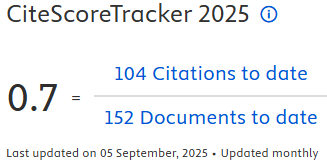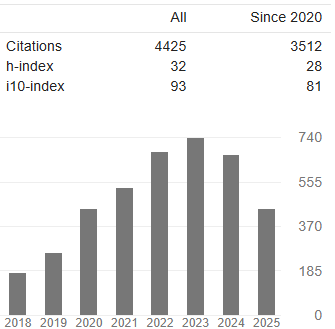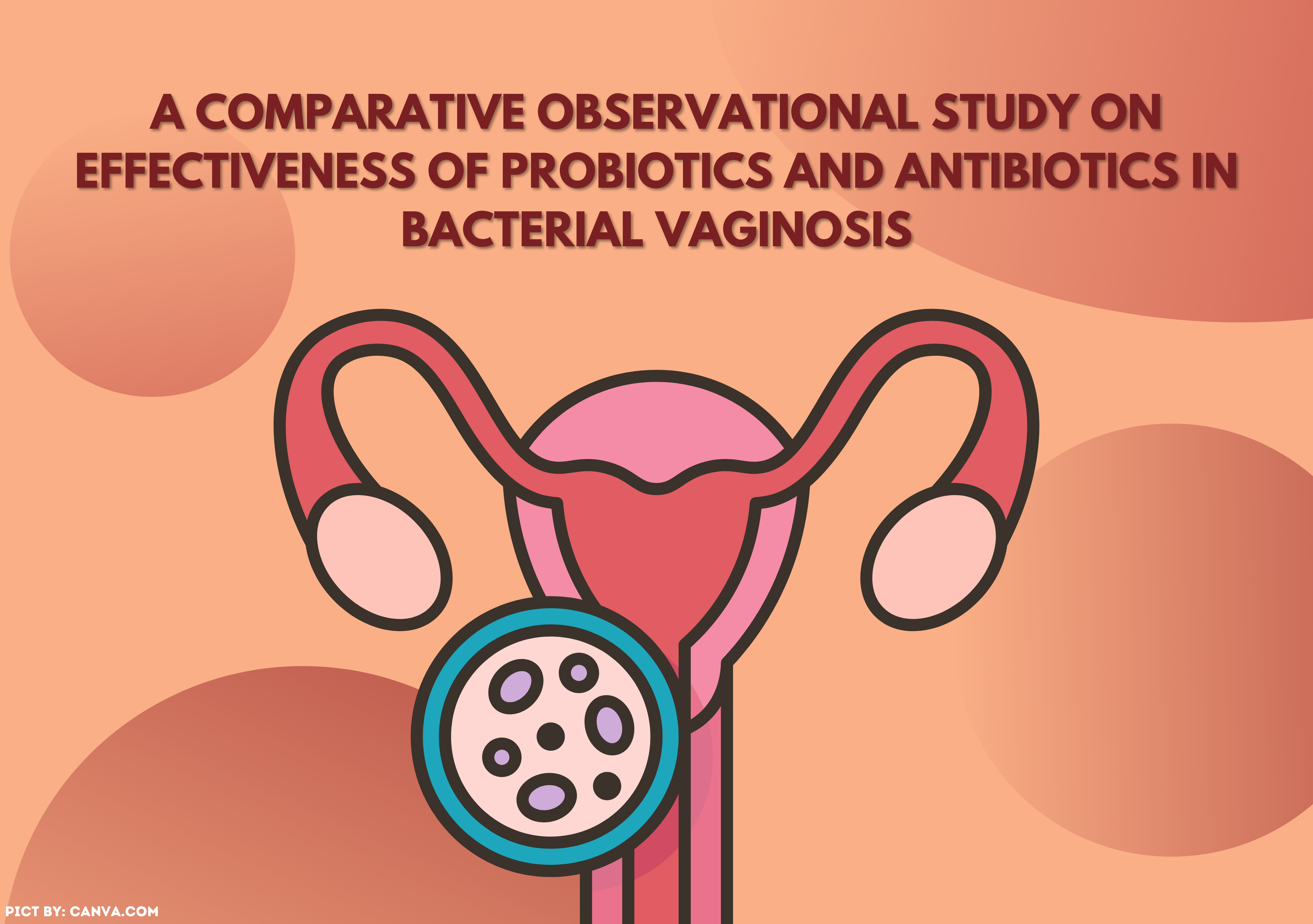PSYCHOLOGISTS' ROLE IN MENTAL HEALTH PROMOTION PROGRAM AT PUBLIC HEALTH CENTRE
Downloads
Introduction: One of the initiations in Daerah Istimewa Yogyakarta is related to mental health workers who are expected to conduct mental health efforts, including optimal optimization promotive efforts through the placement of psychologists in Public Health Centre. Purpose of the study was to analyze psychologists' roles in mental health promotion programs at Public Health Centre in Sleman District. Methods: This was case study approach in qualitative study. Data collection through indepth interviews and focus group discussions were conducted with 32 informants selected by purposive sampling from two Public Health Centres in Sleman District based on extreme cases. Thematic analysis was performed considering four aspects of Normalization Process Theory. Result: Analysis results from psychologists' roles in mental health promotion program at Public Health Centre based on the Normalization Process Theory included, (1) coherence: a difference was observed with the presence of psychologists in the education system, community, and mental health services, (2) cognitive participation: participants were involved from inside and outside of Public Health Centre, (3) collective action: there was coordination between psychologists with cross-profession to promote mental health (4) reflexive monitoring: there were internal and external assessments of psychologists' roles. Conclusion: The conclusion of this study is psychologists played their roles in mental health promotion programs such as communication, giving information, and education.
Keywords: mental health promotion program, Normalization Process Theory, Public Health Centre, psychologists' role
(CPMH), C. for P. M. H. (2015). Workshop Nasional Public Mental Health Week: Membangun Sistem Kesehatan Jiwa dalam Layanan Primer (Puskesmas) di Indonesia: Penguatan Peran dan Kurikulum Psikolog. CPMH UGM.
APA. (2014). Psychologists Promote Health and Well-Being Throughout Our Nation. APA Services, Inc.
Bartholomew, L. K., Parcel, G. S., Kok, G., & Gottlieb, N. H. (2006). Planning Health Promotion Programs: An Intervention Mapping Approach. In Nursing Management (2nd ed., Vol. 24, Issue 7). Jossey-Bass.
Braun, V., & Clarke, V. (2006). Using thematic analysis in psychology. Qualitative Research in Psychology, 3(2), 77–101. https://doi.org/10.1191/1478088706qp063oa
Cope, D. G. (2014). Methods and meanings: credibility and trustworthiness of qualitative research. Oncology Nursing Forum, 41(1), 89–91. https://doi.org/10.1188/14.ONF.89-91
Creswell, J. W. (2014). Research Design: Qualitative, Quantitative, and Mixed Methods Approaches. (4th ed.). SAGE Publications, Inc.
Creswell, J. W. (2016). Research Design: Pendekatan Metode Kualitatif, Kuantitatif, dan Campuran. Pustaka Pelajar.
Gask, L., Rogers, A., Campbell, S., & Sheaff, R. (2008). Beyond the limits of clinical governance? The case of mental health in English primary care. BMC Health Services Research, 8(63), 1–10. https://doi.org/10.1186/1472-6963-8-63
Gillespie, B. M., Harbeck, E., Lavin, J., Gardiner, T., Withers, T. K., & Marshall, A. P. (2018). Using normalisation process theory to evaluate the implementation of a complex intervention to embed the surgical safety checklist. BMC Health Services Research, 18(1), 1–11. https://doi.org/10.1186/s12913-018-2973-5
Gupta, M., Shaheen, M., & Das, M. (2019). Engaging employees for quality of life: mediation by psychological capital. Service Industries Journal, 39(5–6), 403–419. https://doi.org/10.1080/02642069.2018.1462799
Hall, J., Cohen, D. J., Davis, M., Gunn, R., Blount, A., Pollack, D. A., Miller, W. L., Smith, C., Valentine, N., & Miller, B. F. (2015). Preparing the Workforce for Behavioral Health and Primary Care Integration. Journal of the American Board of Family Medicine : JABFM, 28(5), S41–S51. https://doi.org/10.3122/jabfm.2015.S1.150054
Health Agency of Sleman District, H. A. of S. D. (2018). Profil Kesehatan Kabupaten Sleman Tahun 2018.
Holt-Lunstad, J., Robles, T. F., & Sbarra, D. A. (2017). Advancing social connection as a public health priority in the United States. American Psychologist, 72(6), 517–530. https://doi.org/10.1037/amp0000103
Isfandari, S., Rahmawati, T., Siahaan, S., Roosihermiatie, B., Abbas, I., & Maslim, R. (2012). Evaluasi penempatan psikolog dalam pelayanan kesehatan jiwa di Puskesmas Kabupaten Sleman, Yogyakarta, Indonesia, 2011 ( Evaluation the presence of psychologist for mental health service at Primary Health Cares In Sleman District, Yogyakarta, Indonesia, 2. Buletin Penelitian Sistem Kesehatan (Bulletin of Health System Research), 15(4), 354–359.
Jessica V, S., Bamonti, P., Jacobs, M. L., & Moye, J. A. (2021). Capacity assessment training in geropsychology: Creating and evaluating an outpatient capacity clinic to fill a training gap. Gerontology and Geriatrics Education, 42(2), 268–276. https://doi.org/10.1080/02701960.2019.1624258
Johnson, S. B., & Marrero, D. (2016). Innovations in healthcare delivery and policy: Implications for the role of the psychologist in preventing and treating diabetes. American Psychologist, 71(7), 628–637. https://doi.org/https://doi.org/10.1037/a0040439
Kroenke, K., & Unutzer, J. (2017). Closing the False Divide: Sustainable Approaches to Integrating Mental Health Services into Primary Care. Journal of General Internal Medicine, 32(4), 404–410. https://doi.org/10.1007/s11606-016-3967-9
May, C., & Finch, T. (2009). Implementing, embedding, and integrating practices: An outline of normalization process theory. Sociology, 43(3), 535–554. https://doi.org/10.1177/0038038509103208
May, C. R., Cummings, A., Girling, M., Bracher, M., Mair, F. S., May, C. M., Murray, E., Myall, M., Rapley, T., & Finch, T. (2015). Normalization process theory online users' manual, toolkit and nomad instrument.
May, C. R., Cummings, A., Girling, M., Bracher, M., Mair, F. S., May, C.
M., Murray, E., Myall, M., Rapley, T., & Finch, T. (2018). Using Normalization Process Theory in feasibility studies and process evaluations of complex healthcare interventions : a systematic review. Implementation Science, 13(1), 1–42.
McConville, J., McAleer, R., & Hahne, A. (2017). Mindfulness Training for Health Profession Students”The Effect of Mindfulness Training on Psychological Well-Being, Learning and Clinical Performance of Health Professional Students: A Systematic Review of Randomized and Non-randomized Controlled Trials. Explore: The Journal of Science and Healing, 13(1), 26–45. https://doi.org/10.1016/j.explore.2016.10.002
McDanie, S. H., Grus, C. L., Cubic, B. A., Hunter, C. L., Kearney, L. K., Schuman, C. C., Karel, M. J., Kessler, R. S., Larkin, K. T., McCutcheon, S., Miller, B. F., Nash, J., Qualls, S. H., Connolly, K. S., Stancin, T., Stanton, A. L., Sturm, L. A., & Johnson, S. B. (2014). Competencies for psychology practice in primary care. American Psychologist, 69(4), 409–429. https://doi.org/10.1037/a0036072
McEvoy, R., Ballini, L., Maltoni, S., O'Donnell, C. A., Mair, F. S., & McFarlane, A. (2014). A qualitative systematic review of studies using the normalization process theory to research implementation processes. Implementation Science, 9(2), 1–13.
Miller-Matero, L. R., Khan, S., Thiem, R., DeHondt, T., Dubaybo, H., & Moore, D. (2018). Integrated primary care: patient perceptions and the role of mental health stigma. Primary Health Care Research and Development, 20(e48), 1–4. https://doi.org/10.1017/S1463423618000403
Ministry of Health, in I. (2011). Laporan Akhir Penelitian Kajian Peran Dokter dan Psikolog dalam Pelayanan di Puskesmas Kabupaten Sleman.
Ministry of Health, in I. (2013). Riset Kesehatan Tahun Dasar 2013. http://www.depkes.go.id/resources/download/general/Hasil Riskesdas 2013.pdf
Ministry of Health, in I. (2018). Riset Kesehatan Dasar Tahun 2018.
Nilsen, P. (2015). Making sense of implementation theories, models and frameworks. Implementation Science, 10(1), 1–13. https://doi.org/10.1186/s13012-015-0242-0
Palinkas, L. A., Horwitz, S. M., Green, C. A., Wisdom, J. P., Duan, N., & Hoagwood, K. (2015). Purposeful Sampling for Qualitative Data Collection and Analysis in Mixed Method Implementation Research. Administration and Policy in Mental Health and Mental Health Services Research, 42(5), 533–544. https://doi.org/10.1007/s10488-013-0528-y
Peters, D. H., Tran, N. T., & Adam, T. (2013). Implementation Research in Health: a practical guide. Alliance for Health Policy and Systems Research, World Health Organization. In A Practical Guide. World Health Organization.
Petersen, I., Fairall, L., Bhana, A., Kathree, T., Selohilwe, O., Brooke-Sumner, C., Faris, G., Breuer, E., Sibanyoni, N., Lund, C., & Patel, V. (2016). Integrating mental health into chronic care in South Africa: The development of a district mental healthcare plan. British Journal of Psychiatry, 208, s29–s39. https://doi.org/10.1192/bjp.bp.114.153726
Rietbergen-mccracken, J., & Narayan, D. (1998). Participation and Social Assessment : Compiled by. The World Bank.
Saryono, & Anggraeni, M. D. (2011). Metodologi Penelitian Kualitatif dalam Bidang Kesehatan (kedua). Nuha Medika.
Seidl, E. M. F., Duarte, S. C. E. S., Magalhí£es, D. B., & De Vasconcelos Costa, M. (2019). Profile and professional practices of health psychologists of the federal district. Trends in Psychology, 27(1), 249–264. https://doi.org/10.9788/TP2019.1-18
Setiyawati, D., Blashki, G., Wraith, R., Colucci, E., & Minas, H. (2015). Development of Curriculum for Psychologists Working in Primary Health Care in Indonesia: Consensus on Curriculum Recommendations.
Setiyawati, D., & Subandi. (2019). Psikolog di Puskesmas? Yes! Pengalaman Universitas Gadjah Mada. In H. Pols, P. Setiawan, C. R. Machira, Irmansyah, E. S. T. Suci, M.-J. D. Good, & B. J. Good (Eds.), Jiwa Sehat, Negara Kuat: Masa Depan Layanan Kesehatan Jiwa di Indonesia (pp. 169–179). Kompas.
Supper, I., Catala, O., Lustman, M., Chemla, C., Bourgueil, Y., & Letrilliart, L. (2014). Interprofessional collaboration in primary health care: A review of facilitators and barriers perceived by involved actors. Journal of Public Health, 37(4), 716–727. https://doi.org/10.1093/pubmed/fdu102
Surjaningrum, E. R., Minas, H., Jorm, A. F., & Kakuma, R. (2018). The feasibility of a role for community health workers in integrated mental health care for perinatal depression: A qualitative study from Surabaya, Indonesia. International Journal of Mental Health Systems, 12(1), 1–16. https://doi.org/10.1186/s13033-018-0208-0
Tay, J. L., Tay, Y. F., & Klainin-Yobas, P. (2018). Mental health literacy levels. Archives of Psychiatric Nursing, 32(5), 757–763. https://doi.org/10.1016/j.apnu.2018.04.007
Tynan, W. D. (2016). Commentary: Integrated primary care psychology evolving with the affordable care act. Journal of Pediatric Psychology, 41(10), 1165–1167. https://doi.org/10.1093/jpepsy/jsw086
WHO, VicHealth, & Melbourne, U. of. (2004). Promoting mental health : concepts, emerging evidence, practice. In World Health Organization. https://doi.org/10.5840/ ncbq201616462
WHO, W. H. O. (2013). Mental Health Plan Action 2013 - 2020. World Health Organization (WHO).
WHO, W. H. O., & Wonca, W. O. of F. D. (2008). Integrating Mental Health into Primary Care: a Global Perspective. World Health Organization (WHO) and the World Organization of Family Doctors (Wonca).
Widianto, K. P. (2015). Penerapan Pola Pengelolaan Keuangan Badan Layanan Umum (PPK-BLU) pada Program Kesehatan Jiwa Masyarakat Puskesmas di Kabupaten Sleman. Universitas Gadjah Mada.
Yin, R. K. (2013). Case Study Research: Design and Methods (5th ed.). SAGE Publications, Inc.
Copyright (c) 2022 The Indonesian Journal of Public Health

This work is licensed under a Creative Commons Attribution-NonCommercial-ShareAlike 4.0 International License.
- The authors agree to transfer the transfer copyright of the article to The Indonesian Journal of Public Health effective if and when the paper is accepted for publication.
- Authors and other parties are bound to the Creative Commons Attribution-NonCommercial-ShareAlike 4.0 International License for the published articles, legal formal aspect of journal publication accessibility refers to Creative Commons Attribution-NonCommercial-ShareAlike 4.0 International License (CC BY-NC-SA), implies that:
- Attribution ” You must give appropriate credit, provide a link to the license, and indicate if changes were made. You may do so in any reasonable manner, but not in any way that suggests the licensor endorses you or your use.
- NonCommercial ” You may not use the material for commercial purposes.
- ShareAlike ” If you remix, transform, or build upon the material, you must distribute your contributions under the same license as the original.































